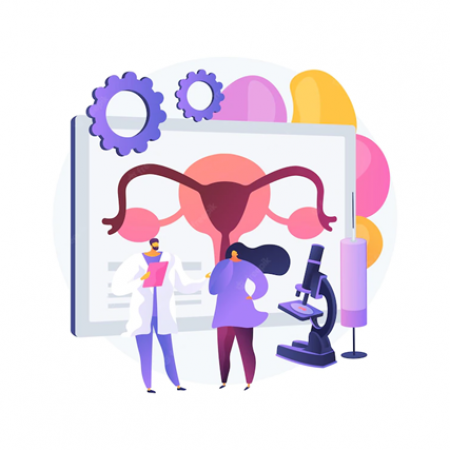
We reached out to Dr. Hrishikesh Pai, one of the best IVF doctor in Delhi; everything you need to know about egg donation, including:
One out of every six couples has trouble conceiving.
For many of them, a fertility treatment, whether it's as simple as IUI or as complex as IVF, can help them start a family.
In some cases, egg donation may be the best option.
There are various reasons why someone might require the services of an egg donor.
Few patients may already be aware that they require donor eggs because:
They could have a slim opportunity of bearing a child with their eggs (as low as two to five percent), or they could be suffering from ovarian collapse or premature menopause.
When conferring egg donation as your treatment option, your fertility doctor will explain to you the typical procedure and provide you with information on your chances of success.
"Among the most prosperous fertility procedures available is treatment with donor eggs," says Dr. Hrishikesh Pai, the founder of Bloom IVF clinic, an outstanding IVF clinic from Delhi.
"It gives patients who have a slim chance of getting pregnant a fantastic chance to start a family."
How does it work?
Egg donation can take one of two forms: receiving eggs from a donor through your fertility clinic's egg donation program or receiving eggs from a family member, such as:
Some patients prefer to know the donor and maintain a genetic link with their child, while others favor the freedom of utilizing a donor recruitment center.
One of the initial phases in an egg donation program is counseling, where the counselor discusses and explores the implications of these paths.
Donors are typically young women in their twenties or thirties, most of whom are acutely aware of the fertility needs of other women." They may know someone who has struggled with infertility or who has a happy family and wants to give back.
Selecting the Most Appropriate Donor for You
It's critical to consider what's important to you as a donor when you start your donor egg journey.
Most donor recruitment clinics will pair you with a donor who shares your physical characteristics.
You can also take note of other characteristics that are important to you, such as their talents and interests.
According to Dr. Hrishikesh Pai, the founder of Bloom IVF clinic, an excellent IVF clinic from Delhi, you will be able to review the donor's profile ahead of time, which will include:
They can also include additional information such as:
"There is no one-size-fits-all approach to finding the ideal donor; different things stand out to different people." For example, someone may be interested in musicality because they come from a musical family or have always wished to be musical."
Once you've found your donor, you'll go through an IVF cycle with them.
They take medication to stimulate their ovaries to produce multiple follicles, then go through an egg collection procedure to collect and donate their eggs.

What happens once the eggs are donated?
After the donor eggs are delivered to the clinic, the treatment is divided into several stages. To prepare for the embryo transfer, you will first take a few medicines to thicken your womb's lining and have some scans to monitor your progress.
The embryologists in the laboratory will take the eggs out of storage and thaw them on the agreed-upon date.
They'll then begin an ICSI procedure, in which an embryologist injects a single sperm into each mature egg (from your partner or a sperm donor).
As the embryos develop, they will be kept in a carefully controlled environment.
The embryos are ready for transfer when they reach the blastocyst stage. One embryo will be transferred, and any remaining embryos will be frozen for future use.
Many patients can start their families with just one donor cycle.
"It's just like any other pregnancy once the embryo is transferred," Dr. Hrishikesh Pai, an expert infertility specialist from Delhi, says. "The mother carries the pregnancy and gives birth to her child; she can breastfeed if she wants to, and they can share all of life's wonders as a family."
Study finds a gene could prevent Parkinson's disease
These fruits will make the teeth strong, start consuming it from today.
Eating sweet food increased the sugar level, so adopt these home remedies